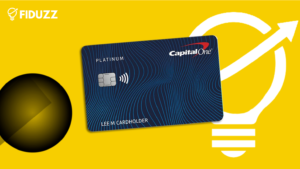Debt consolidation is a solution many people turn to when overwhelmed with multiple debts. It combines all your debts into one payment, often with a lower interest rate, making it easier to manage.
What is debt consolidation?
Debt consolidation is a strategy used to combine multiple debts into a single payment. This method aims to reduce the interest rates or monthly payment amounts, easing the financial burden for those struggling with debt. By merging debts, individuals can manage their finances more effectively.
Types of Debt Consolidation
There are several types of debt consolidation methods, including personal loans, credit card balance transfers, and home equity loans. Each option has its own terms, interest rates, and fees, so it’s crucial to compare them before making a decision.
How Does It Work?
When consolidating debt, you take out a new loan to pay off existing debts. This new loan usually comes with a lower interest rate, making it easier to pay off over time. Financial institutions or credit counseling agencies often offer debt consolidation services to help you through this process.
Why Consider Debt Consolidation?
Consolidation can simplify your financial life, combining multiple payments into one. This not only reduces the likelihood of missed payments but can also improve your credit score over time. However, it’s essential to understand the terms and conditions of your consolidation plan to avoid any unexpected fees or higher interest rates in the future.
The benefits of debt consolidation

Debt consolidation offers multiple advantages for those grappling with financial stress. One primary benefit is the significant reduction in monthly payments. By combining various debts into a single payment, individuals can often secure a lower interest rate, thus lowering their overall financial burden.
Additionally, debt consolidation simplifies financial management. Instead of juggling multiple due dates and amounts, you only have to track a single payment. This streamlined approach helps prevent missed payments, which can further damage credit scores.
Moreover, debt consolidation can have a positive impact on your credit score over time. As you consistently make your consolidated payments, your credit utilization ratio improves. Lowering this ratio is a key factor in boosting your credit score.
Another significant benefit is the reduction of stress. Financial difficulties can take a toll on mental health, and simplifying your debt situation can alleviate some of that pressure. Knowing that you are on a structured plan to pay off your debts can provide peace of mind.
Finally, debt consolidation can offer the flexibility to negotiate better terms. When working with a creditor or a financial institution, you might be able to secure exclusive terms that weren’t available to you before, facilitating a more manageable and affordable repayment process.
How to choose the right consolidation plan
Choosing the right consolidation plan is crucial for achieving financial freedom. It’s essential to evaluate your current financial situation thoroughly. Begin by listing out all your debts, including the interest rates and monthly payments.
Evaluate Different Plans
There are various consolidation plans available. You might consider a debt consolidation loan if you qualify for a lower interest rate. Alternatively, a balance transfer credit card can be beneficial if it offers a 0% introductory rate. Be sure to compare the benefits and drawbacks of each option.
Assess Your Ability to Make Payments
Consider your income and expenses to determine how much you can realistically afford to pay each month. Some consolidation plans might stretch your payments over a longer period, lowering monthly payments but increasing the total amount paid over time.
Understand Fees and Terms
Pay attention to any fees associated with the consolidation plan, including origination fees, balance transfer fees, and prepayment penalties. Understanding these costs will help you choose the most cost-effective plan.
Seek Professional Advice
Consult with a financial advisor or a credit counselor. These professionals can provide valuable insights and help you make an informed decision based on your specific circumstances.
Remember, the goal of choosing the right consolidation plan is to simplify your payments and reduce overall interest. Take your time to research and find the plan that aligns best with your financial goals.
Common mistakes to avoid

One of the main mistakes people make is not understanding the terms of their new loan. It may seem attractive to consolidate multiple debts into one payment, but without reading the fine print, you can end up paying more in the long run. Always read and understand the terms before agreeing to a consolidation loan.
Another common mistake is not changing the spending habits that led to debt in the first place. Debt consolidation can provide relief, but it won’t solve underlying financial habits. Reviewing and adjusting your budget is crucial to ensure you don’t fall back into debt.
It’s also important to recognize that not all debts should be consolidated. Some debts may have lower interest rates or more favorable terms than the consolidation offer. Analyze each debt separately to determine whether consolidating is the best option for that particular liability.
Failing to shop around for the best rates and terms is another significant error. Different financial institutions offer various interest rates and repayment terms. Take the time to compare these options to find the one that best suits your financial situation.
Lastly, missing payments on the new consolidated loan can negate the benefits you’re looking to gain. Set up automatic payments or reminders to ensure timely payments, thereby avoiding additional fees and damage to your credit score.
Success stories and testimonials
Many individuals have transformed their lives through debt consolidation. These success stories stand as a testament to the effectiveness of this approach. Jane, a teacher from Florida, found it tough to manage her credit card debts and personal loans. Through a debt consolidation program, she was able to combine her debts, drastically reducing her monthly payments.
Another compelling case is of Michael, a small business owner. Overwhelmed by business loans and personal debts, he opted for debt consolidation. This move not only eased his financial burden but also improved his credit score. Now, he enjoys financial stability and peace of mind.
Customer testimonials reflect the positive impact debt consolidation can have. One client shared, ‘I was drowning in bills and collection calls. Consolidating my debts was the best decision I ever made. It’s like a weight has been lifted off my shoulders.’ Such testimonials are common among those who’ve embraced this solution.
These stories demonstrate that debt consolidation isn’t just a financial strategy; it’s a gateway to financial freedom and a stress-free future. By learning from these experiences, others can see the potential benefits and consider this as a viable option for their financial recovery.




